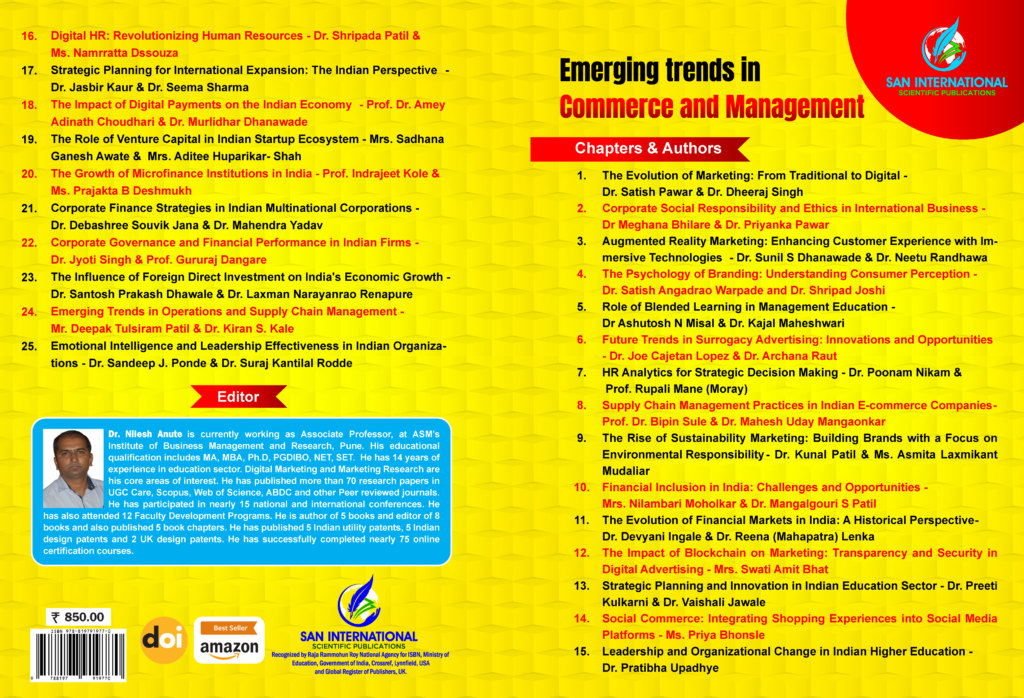Book Title: Emerging Trends in Commerce and Management
Editor: Dr. Nilesh Anute
ISBN: 978-81-979197-7-0
Chapter: 14
DOI: https://doi.org/10.59646/emc14/255
Author: Ms. Priya Bhonsle, Assistant Professor, Rungta Group of Institution, Bhilai, Maharashtra, India.
Learning Objectives
This chapter aims to provide a comprehensive understanding of social commerce, focusing on the integration of shopping experiences into social media platforms. By the end of this chapter, learners will be able to define social commerce and differentiate it from traditional e-commerce, recognizing how it leverages social media’s interactive nature to enhance the shopping experience. They will explore various models and strategies of social commerce, including shoppable posts, in-app checkouts, and product catalogs on platforms like Instagram, Facebook, Pinterest, TikTok, Snapchat, Twitter, and YouTube. Learners will analyze the benefits of integrating shopping into social media, such as increased engagement and seamless purchase processes, alongside challenges like platform dependency and data privacy concerns. The chapter will also delve into future trends and potential developments in social commerce, including the roles of augmented reality (AR) and artificial intelligence (AI), which promise to further revolutionize the retail landscape.
References
- Anute N, Deshmukh A (2015) Consumer Buying Behavior towards Cosmetic Products, International Journal in Management and Social Science (Impact Factor- 4.358), Vol.03 Issue-07, ISSN: 2321-1784, Page no- 25-34.
- Azhar, M., Akhtar, M.J., Rahman, M.N., Khan, F.A., 2023. Measuring buying intention of generation Z on social networking sites: an application of social commerce adoption model. J. Econ. Adm. Sci. https://doi.org/10.1108/jeas-02-2022-0047.
- Bandura, A., 1977. Self-efficacy: toward a unifying theory of behavioral change. Psychol. Rev. vol. 84 (2), 191–215. https://doi.org/10.1037/0033-295X.84.2.191.
- Bandura, A., Schunk, D.H., 1981. Cultivating competence, self-efficacy, and intrinsic interest through proximal self-motivation. J. Pers. Soc. Psychol. vol. 41 (3), 586–598. https://doi.org/10.1037/0022-3514.41.3.586.
- Carillo, K.D.A., “Introspection within the IS discipline-Social Cognitive Theory as a Reference Theory for Future Research,” in 21st Australasian Conference on Information Systems, 2010. http://aisel.aisnet.org/acis2010/66.
- Chae, H., Kim, S., Lee, J., Park, K., 2020. Impact of product characteristics of limited edition shoes on perceived value, brand trust, and purchase intention; focused on the scarcity message frequency. J. Bus. Res. vol. 120, 398–406. https://doi.org/ 10.1016/j.jbusres.2019.11.040.

